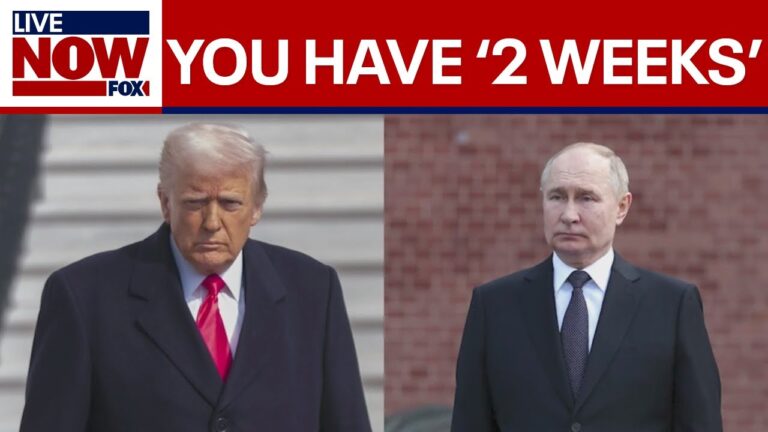Video at the bottom!
As tensions mount between the United States and Russia, President Trump addressed the ongoing conflict involving Ukraine, emphasizing the need for diplomatic resolution. Speaking from the White House, he expressed disappointment over the recent escalation of violence, particularly after reports of significant Russian drone attacks on Ukrainian cities. The Ukrainian Air Force reported that over the weekend, Russia deployed its largest drone assault, launching more than 900 drones within three days.
Trump indicated he would give President Putin a two-week window to negotiate a peaceful outcome, acknowledging the complexities of the relationship and the unpredictable nature of Putin’s intentions. He expressed uncertainty about whether the Russian leader genuinely desires to end the hostilities, noting that tangible results are necessary to gauge sincerity.
The comments from Trump followed a noteworthy warning from Dmitry Medvedev, former president of Russia and now a prominent security figure, who claimed U.S. actions could escalate tensions toward World War III. This rhetoric signals a significant shift in Moscow’s tone, which has fluctuated over the past three years as the war persists.
Demetrius Sahas, a political science expert from Virginia Tech, discussed the shifting U.S.-Russia dynamics. He explained that earlier assumptions about Trump potentially facilitating a resolution have been undermined by ongoing hostilities. Sahas pointed out that Ukraine has no choice but to continue fighting to protect its sovereignty, especially with U.S. and European backing.
In addressing the underlying issues, Sahas highlighted that Ukraine’s NATO aspirations and the annexation of Crimea remain critical red lines for Russia, which complicate the prospect of a lasting peace. The conversation underscored the precarious situation on the ground and the limitations both sides face regarding significant territorial concessions.
Looking ahead, both Trump and Sahas suggested that diplomatic efforts will intensify, with the U.S. expected to apply pressure on Russia to present credible proposals for a ceasefire. The upcoming weeks will be crucial as the international community watches closely for signs of progress or further escalation.
As public interest in the conflict grows, a poll gauging opinions on U.S. involvement in the situation indicates a divergence of views among the audience. As discussions continue on the best path forward, experts stress the importance of a durable solution that benefits all parties involved.


